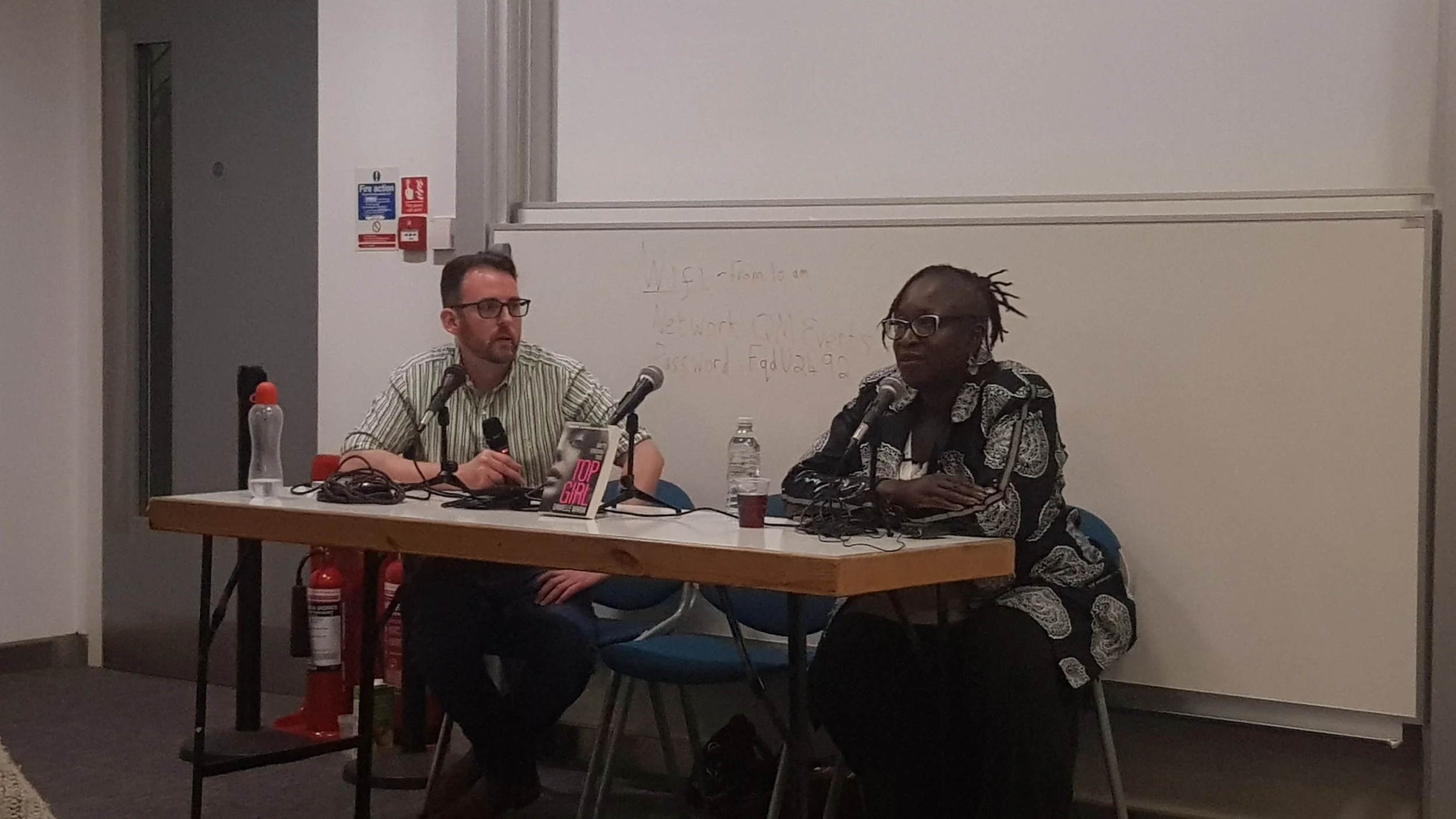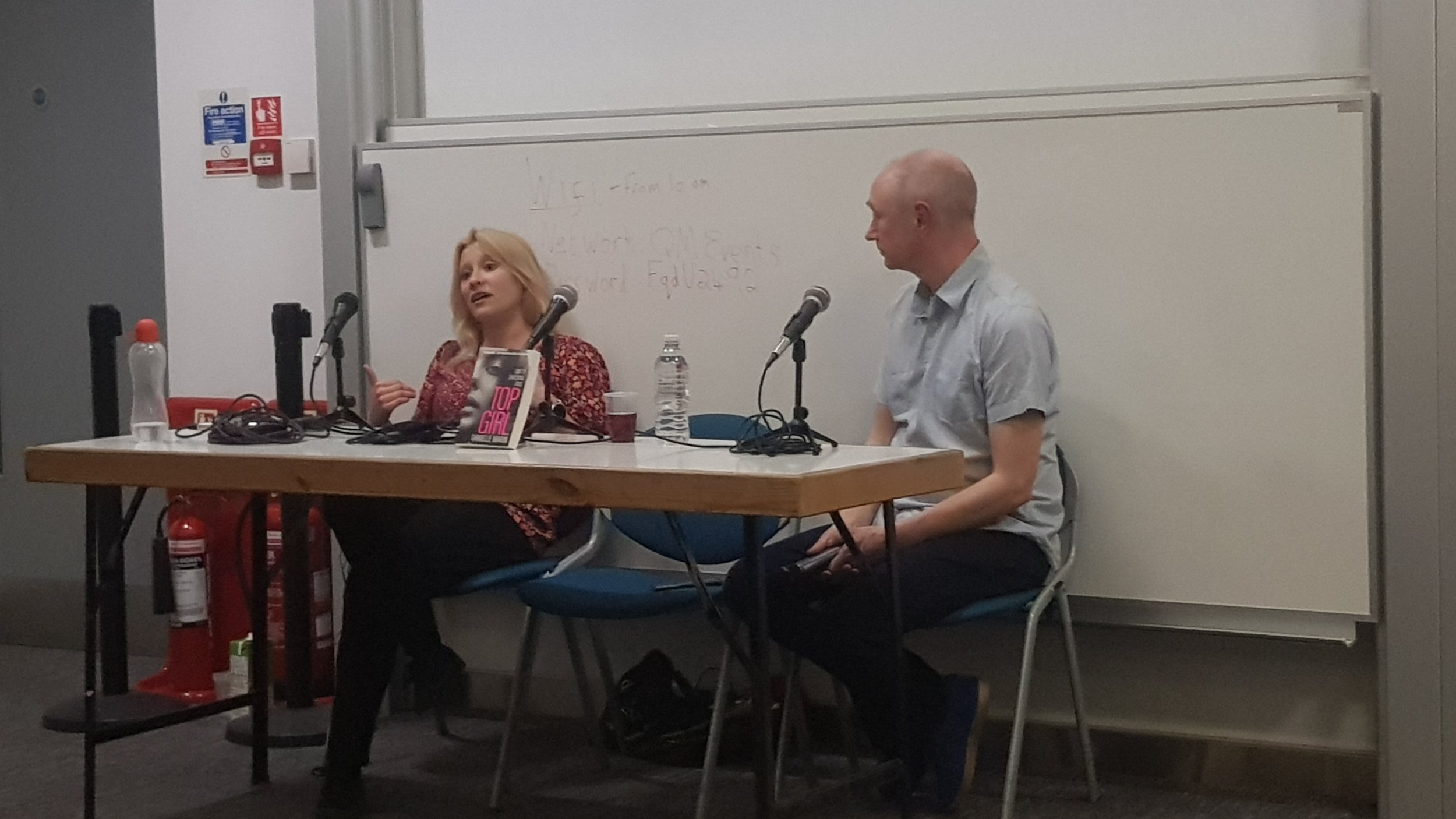Psychedelics and PTSD (Part 2) : MDMA
Now that the dust has settled - and there was certainly a bit of a storm on the night - we wanted send our sincere thanks all of you that attended Psychedelics and PTSD Part 2 :MDMA. It's always great to get together in person and share our passion to drive change and for me it was a very moving experience.
Thanks so much to our new OEV community members for coming along, and also to those you who've been with us for a while. I hope you'll agree the evening was informative, passionate, and moving and although the topics we cover are challenging, there is such a warmth in the room when people who are invested in making change get together.
Without your support, events like this would not be possible, so we thank you for engaging so fully with these important but often difficult topics.
As was aptly demonstrated on the night, it's only by engaging with each other, hearing evidence and stories and having difficult conversations that we can move the debate forward and drive the major changes that are needed in drug, health, social and criminal justice policy Let's use this as a springboard to have conversations with our friends, family, work colleagues, fellow students, and beyond. These are issues that impact many of us and some suffer in silence or unaware, lets find the common ground so we can demand compassionate, evidence-based policy not influenced by stigma born out of othering.
For those of you who couldn't make it, we wanted to share highlights of the brilliant contributions from out amazing speakers Sarko, Ben, Akua, and Juila, as well as to thank the skillful and empathetic hosting of what were on occasion difficult conversations, provided by Jason and Neil.
'I Went Left'
We started the evening by hearing from Lieutenant Sarko Gergerian. Due to late changes in his travel plans, he wasn't able to join us live by Zoom but so keen was he to share his experiences and perspectives with our audience that he pre-recorded the interview below. If all police were like Sarko, the world would be a better place for sure - have a watch of his interview and you'll see what we mean. Hear about his fascinating journey from night club bouncer to Police Lieutenant and Peace Office, with a progressive, people-focussed approach to policing and a find out why going left was a very fateful decision.
If you happen to know any police officers, share with them. Whilst people like Sarko are leading the change we can all help by being supporters and sharing, one person's awareness changed or interest peaked is a win.
Australia Gains at the UK's Expense
We have Dr Ben Sessa to thank for such a powerful evocation of the impact of childhood trauma and the role of attachment experiences in influencing mental health throughout life. Ben also gave an honest and pragmatic evaluation about the false divide between disorders, psychedelic treatments and the various substances.
One of the most accessible, comprehensible and passionate explanations of the need, the evidence, and the mechanism's that we've ever heard.
In Ben's view and based on the research so far, all psychedelics work in broadly the same way by opening a therapeutic window to overcome clinical 'stuckness' and change thinking about self, others, and the past so a platform can be built for making changes in life. As Ben explained, if you've been told (either in words or by the way you were treated or both) that you are not loved or lovable, no amount of a therapist telling you that's not true is going to change that. You need to be able to feel differently about yourself before you can think differently and that's what psychedelics help to enable.
Whilst our UK regulators wait for more evidence, Ben's seen enough and so he is off to Australia for a period of time to make a real impact by running a training program and developing MDMA and Psilocybin therapy protocols as Psychiatrists there will be able to prescribe MDMA and Psilocybin from July 2023.
As Ben explained, MDMA is unique amongst psychiatric drugs in being almost universally experienced as pleasant, even euphoric - as many, many millions of the world could testify - and the evidence and the need is there as are the standards of care. So we could do worse than follow their example and get on with building out the necessary therapeutic and aftercare skills and infrastructure.
A Story of Love and Desperate Choices From the Heart of The War on Drugs
To start the second half, we were privileged to be joined by Akua Ofosuhene to hear some of her remarkable and shocking story. Fortunately it's a story that had a happy ending of sorts for Akua's son. But for a lot his friends, sadly, that was not the case.
If you get a chance, you really need to hear this story. It's a journey in which Akua had to first deal with her own issues and spend a lot of time re-attaching with her son, repairing their relationship before she could even begin her attempts to bring him out of the county lines operation he'd been groomed into.
In the end, it took something dramatic to break him out of the psychological hold the gang had over him.
That thing was love, for himself and for others, something he'd lost but he recovered with help from some of the 'techniques' described by Ben and Sarko, These were different circumstances however, one where this treatment is not officially available - hence why we can't speak freely here. So, Akua made a choice and one that many would question and indeed on the night they did. But she was faced with an unenviable decision, a parents dilemma, 'what would you do to save your child'?
Act now, or regret forever. It’s unforgivable that Akua was placed in this situation but when your child is groomed into a county lines gang, and when we say groom, we mean to the extent that he went willingly every day, believing he needed to do this to help his family, such is the sophistication of the gang's tactics and their expertise at identifying and influencing vulnerable but often angry and scared young people. With all that entails, the clear and present imminent danger in the brutal culture our drug laws have created was obvious. And Akua’s telling of what had befallen others in the orbit was arresting in it's frankness. We commend your commitment to telling your story Akua, openly and with such candour
It was as clear an example as ever as to why Britain's failing drug laws need to change urgently. No amount of police action is impacting this situation with the absolutely shocking figures of 50,000 children currently engaged in county lines activity. All this because as Ben Sessa explained, people who are treating their own intense emotional and traumatic pain by numbing it with opiates can't get access to their medicine, without having to fund the criminal gangs that exploit vulnerable young people.
And Even if The Police Want to Help, They Can't
And to wrap up, ex community Met Police Officer Julia Ryland, chatted with Neil Woods and explained how she went in to the Police to help people but despite recognising the futility of criminalising vulnerable people, over minor drug offences, she quickly realised the culture, rewards and politics mean that more often she was doing harm rather than good.
Julia got out, to avoid having to make adjustments to her own values in order to continue to justify her actions. As Julia pointed out, the survival strategy in this situation is to develop a cynical approach that corrodes police culture from the inside, like rust, whilst taking a toll on those people who hold it in their minds, the moral injury they feel eventually cumulatively impacts their mental health significantly.
In this context, where values and culture are skewed by cynicism, misogny, racism and hostility and allowed to spread. What to do tackle this, as the final question of the night, landed like a grenade at Julia's feet. 'Should we defund the police'? No, answered Julia after a pause, skillfully diffusing the question, we should switch funding to mental health and harm reduction services and away from 'The War' (on Drugs).
Two police officers so affected by their experiences that they left the police and now totally dedicate their lives to overturning drug laws. Doesn't that say it all?
And Then We Went to The Pub
To say thanks for our speakers and spend some time chatting with some our OEV community members who stayed back, after the event we popped round the corner to a local pub. I also got a chance to chat with Rupert Scriven's Dad (Rupert is the author of the The Art of Ecstasy and kindly provided the art for event .
A really nice way to end the night, do come and join us next time, sign up to our mailing list or follow us on .





